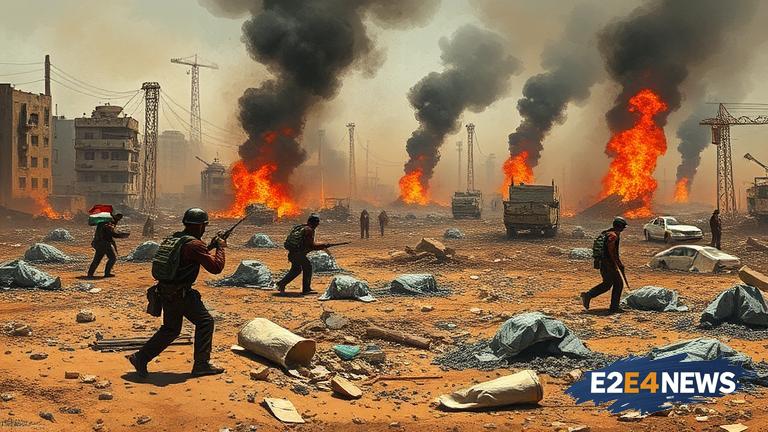The Gaza Strip is grappling with an unprecedented humanitarian crisis as the death toll from the ongoing Israeli war continues to rise, with over 61,000 fatalities reported to date. The conflict has resulted in widespread destruction, displacement, and a severe shortage of essential supplies, including food and medicine. The latest figures indicate that 188 people have died from hunger, highlighting the dire need for urgent humanitarian intervention. The Israeli military campaign has been criticized for its disproportionate use of force, resulting in significant civilian casualties and damage to critical infrastructure. The Gaza Strip’s healthcare system is on the brink of collapse, with hospitals struggling to cope with the influx of injured patients and a severe shortage of medical supplies. The international community has been urged to take immediate action to address the crisis, including providing emergency aid and working towards a lasting ceasefire. The United Nations has warned of a potential humanitarian catastrophe, emphasizing the need for unhindered access to the affected areas. The Gaza Strip’s economy has been severely impacted, with businesses and industries forced to shut down due to the conflict. The region’s infrastructure, including roads, bridges, and buildings, has been significantly damaged, exacerbating the humanitarian crisis. The psychological toll of the conflict on civilians, particularly children, is a growing concern, with many experiencing trauma and anxiety. The international community has been criticized for its response to the crisis, with many arguing that more needs to be done to address the root causes of the conflict. The Israeli government has faced accusations of war crimes, including the targeting of civilian infrastructure and the use of disproportionate force. The Palestinian leadership has called for an immediate end to the conflict, emphasizing the need for a lasting and just peace. The Gaza Strip’s residents are facing a daily struggle to survive, with many forced to rely on aid and handouts to get by. The conflict has also had a significant impact on the region’s environment, with reports of pollution and damage to natural resources. The international community has been urged to take a more proactive role in addressing the crisis, including providing support for reconstruction efforts and promoting a lasting peace. The Gaza Strip’s future remains uncertain, with many fearing that the conflict will have long-lasting and far-reaching consequences. The humanitarian crisis in Gaza serves as a stark reminder of the need for urgent and collective action to address the root causes of conflict and promote peace and stability in the region. The death toll continues to rise, with many more expected to lose their lives in the coming days and weeks. The Gaza Strip’s residents are in desperate need of support, including food, shelter, and medical care. The international community must come together to address this crisis, providing emergency aid and working towards a lasting solution. The conflict in Gaza is a complex and deeply entrenched issue, requiring a comprehensive and multifaceted approach to resolve. The humanitarian crisis in Gaza is a stark reminder of the need for peace, justice, and human rights in the region.





